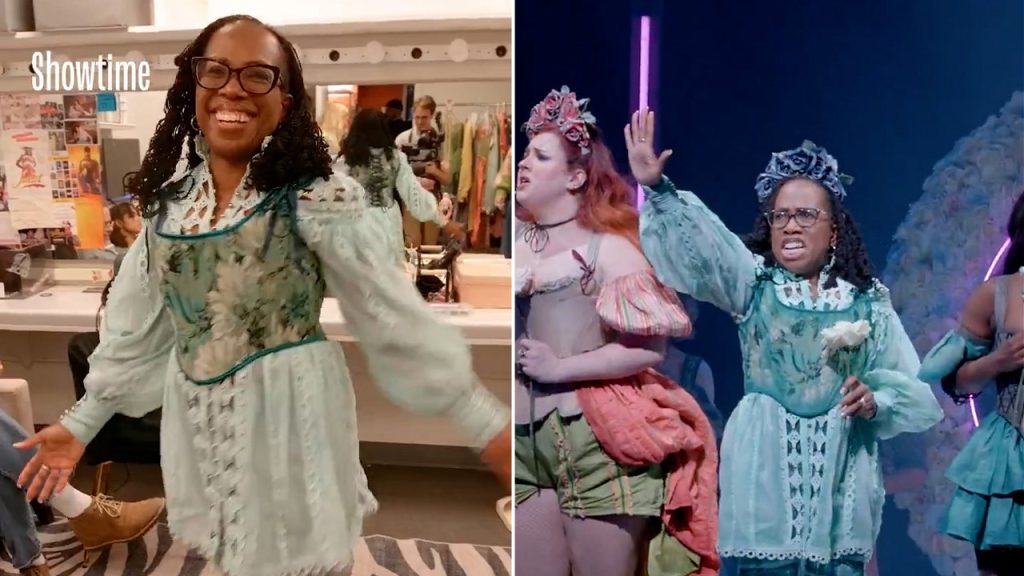The recent Broadway cameo of Supreme Court Justice Ketanji Brown Jackson in the musical "& Juliet" has sparked a debate about judicial impartiality, particularly given the Supreme Court’s impending decision on a landmark case concerning transgender surgical procedures for minors. Critics argue that Jackson’s participation in a production with prominent LGBTQ+ themes could be perceived as endorsing an ideological position on an issue currently before the court, thereby compromising the appearance of impartiality. This concern stems from the musical’s narrative, which challenges traditional gender roles and features a nonbinary character with a significant queer relationship. The crux of the argument lies in the potential conflict between Jackson’s artistic expression and her judicial role, raising questions about whether justices should engage in activities that could be construed as aligning with specific viewpoints on matters they may adjudicate.
Thomas Jipping, senior legal counsel at the Heritage Foundation, expressed concern over Jackson’s participation, emphasizing that federal judges, especially Supreme Court justices, should refrain from activities that appear to endorse ideological positions on issues potentially coming before the court. He argued that while participation in a classic production might be viewed differently, "& Juliet," with its overt advocacy for LGBTQ+ themes, crosses a line. Jipping’s criticism centers on the perceived impropriety of a Supreme Court justice seemingly advocating for a position on a matter currently being litigated, potentially impacting public trust in the judiciary’s impartiality. He also pointed to the ongoing debate surrounding ethical standards for Supreme Court justices, suggesting that liberals who have previously advocated for stricter codes of conduct should address Jackson’s actions.
The controversy surrounding Jackson’s appearance also highlights a broader conversation about the ethical obligations of Supreme Court justices and the potential for their personal lives and public appearances to influence public perception of their impartiality. Critics like Jipping argue that Jackson’s participation in "& Juliet" constitutes a "reckless" act that undermines public confidence in the judiciary. They contend that justices should prioritize maintaining impartiality, both in reality and in appearance, and refrain from activities that could be interpreted as taking sides on contentious social issues. The argument revolves around the perception that Jackson’s cameo, regardless of her intent, could be viewed as an endorsement of a particular stance on transgender rights, a sensitive issue currently under judicial review.
However, it’s worth noting that Justice Jackson’s participation in a theatrical production is not without precedent. Justices Antonin Scalia and Ruth Bader Ginsburg, despite their differing ideological viewpoints, famously appeared in a non-speaking opera performance in 1994. While their participation was in a classical production and did not involve spoken lines or overt political messaging, it does demonstrate that justices have engaged in artistic endeavors in the past. The distinction lies in the nature of the performances and the potential for their content to be perceived as aligning with specific social or political viewpoints. This contrast raises the question of whether the content of the performance, rather than the mere act of participating, is the key factor in determining the propriety of such engagements.
The ongoing debate about judicial ethics is not limited to Justice Jackson. Conservative justices, including Clarence Thomas, Samuel Alito, Amy Coney Barrett, and Brett Kavanaugh, have faced scrutiny over various issues, from political activism of spouses to undisclosed trips and ties to religious organizations. These instances have fueled calls for stricter ethical guidelines for the Supreme Court, raising questions about the potential influence of personal beliefs and affiliations on judicial decisions. The scrutiny faced by justices across the ideological spectrum underscores the complexities of balancing personal freedoms with the demands of judicial impartiality.
The Supreme Court’s impending decision in the U.S. v. Skrmetti case, which addresses the legality of banning transgender surgical procedures for minors, adds another layer of complexity to the discussion surrounding Justice Jackson’s Broadway appearance. The case has significant implications for transgender rights and could potentially shape future legal battles related to issues like bathroom access and school sports participation. The court’s eventual ruling will undoubtedly be subject to intense scrutiny, and any perceived bias or pre-judgment by the justices will likely be amplified by the ongoing debate surrounding judicial ethics. Justice Jackson’s participation in "& Juliet" therefore becomes part of a larger narrative about the court’s credibility and its ability to adjudicate sensitive social issues fairly and impartially.

